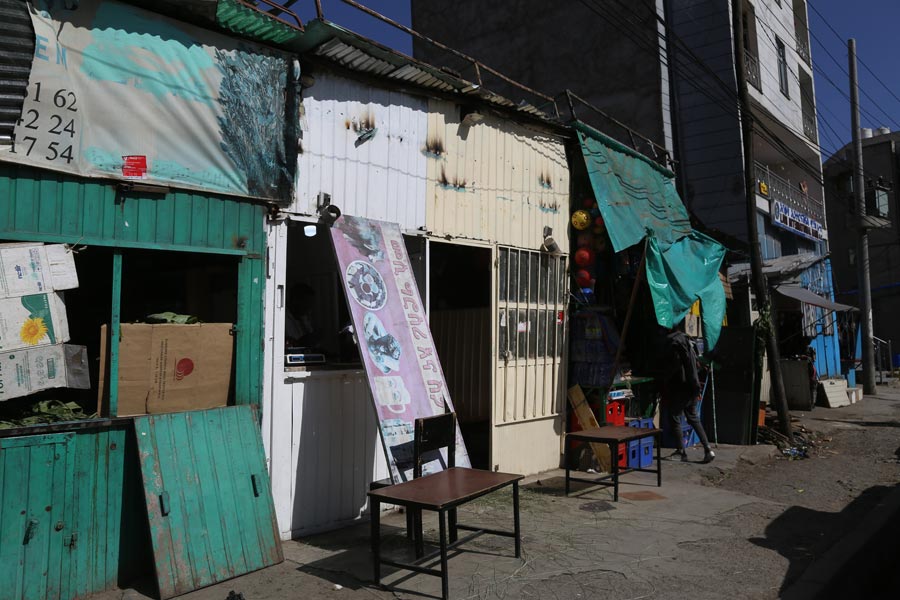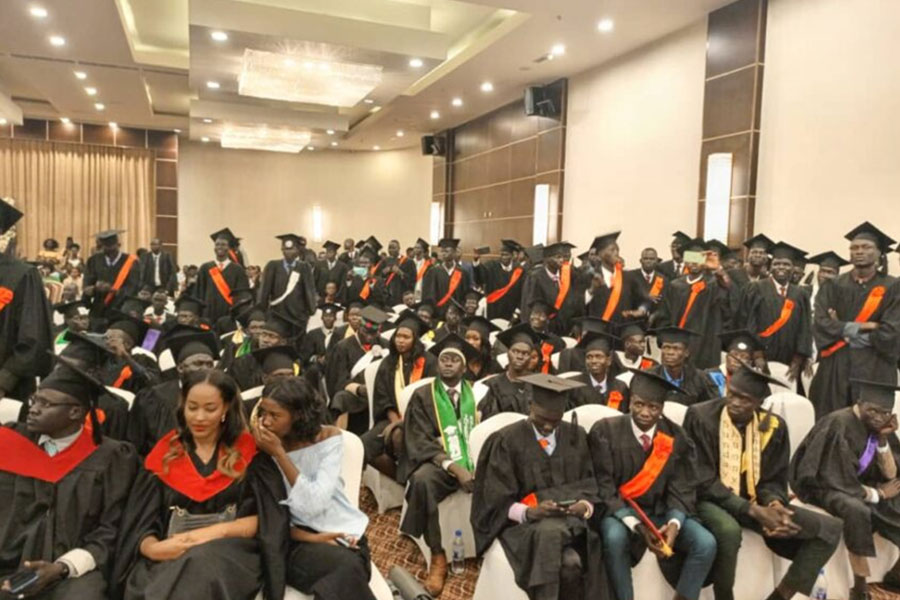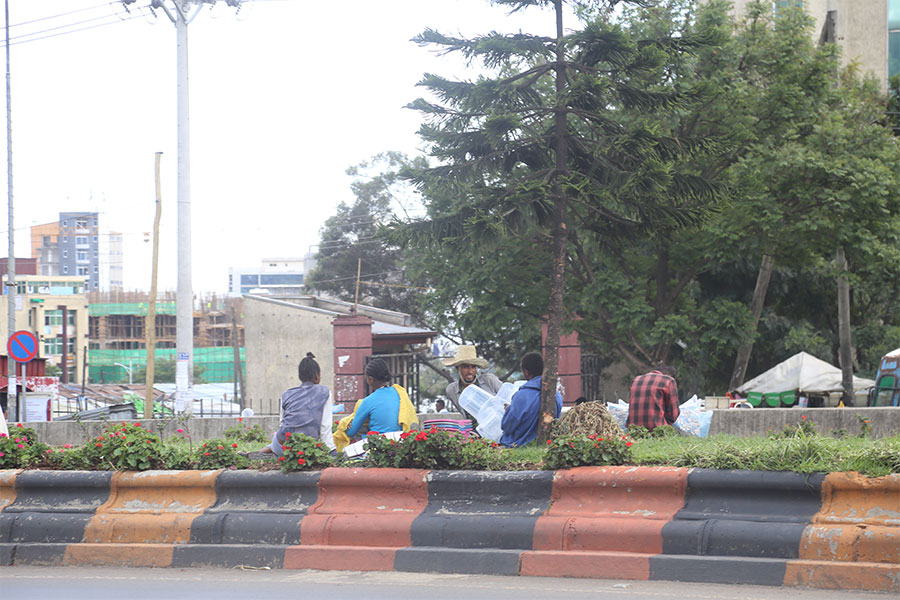
Agenda | Nov 25,2023
Apr 28 , 2024
By Tesfahun Leta
In the daily rhythm of work and life, it is not uncommon for a single negative comment to overshadow an otherwise positive day. The tendency to dwell on the negative — a trait deeply ingrained in human psychology — plays an oversized role in shaping societal dynamics and even national policies, with consequential implications for countries like Ethiopia.
Research has consistently shown that people tend to prioritise negative information over positive, affecting everything from individual decisions to collective behaviours. From an early age, humans are more receptive to positive cues; however, this changes around the first year of life as children begin to respond more to negative stimuli. The shift suggests an inherent negative bias that emerges early in human development.
This psychological tendency is more than a matter of personal disposition. It has broader societal impacts, especially when exploited by those in positions of power. Politicians, activists, and individuals of influence often use this bias, deploying media platforms to promote their ideologies. By focusing on negative messaging, they can galvanise public attention and support for their agendas, often at the expense of social harmony.
This manipulation of public perception through negative framing has wreaked havoc on our social and economic life. The prevalence of fabricated narratives on social media has fueled political and ethical conflicts at a national level, inciting violence and deepening divisions along ethnic and religious contours. Misleading narratives easily capture public attention, stirring emotional responses that can escalate into conflict.
The role of social media in spreading these harmful narratives is particularly concerning. It amplifies negative information and accelerates its spread, quickly reaching large audiences with little oversight. As a recent incident widely shared across social networks illustrates, the dynamic can lead to tragic outcomes. An elderly man was attacked by a group of young men who appeared to have suspected his motives when he entered their neighbourhood in search of food. The assault, a direct result of entrenched hateful rhetoric, was not only a manifestation of the community's suspicions but also a graphic example of the dangers of unchecked negative bias.
Such incidents bring to our attention the cumulative effect of negative influences, which do not surface overnight but build up over time, often influenced by repeated exposure to hateful narratives. The impact is particularly pronounced among the youth, who are more impressionable and whose worldviews are still taking shape. The long-term consequences of negativity are a fracturing of social cohesion and a decline in the once-valued ethos of solidarity and tolerance.
Addressing this challenge requires a conscientious effort to promote positive and accurate information. While disseminating false and harmful content can shift societal attitudes over time, strategically sharing truthful and uplifting messages can be equally powerful. Such efforts can help counteract the prevailing negativity, promote a more harmonious environment, and strengthen communal bonds. Eventually, citizens are responsible for cultivating a positive informational landscape.
It is crucial to lead by example and champion accuracy and positivity in public discourse, especially for those in the media, politics, and social leadership. As a society, there is a moral imperative to reject the divisive tactics often employed for political gain and to instead embrace a narrative that promotes understanding.
By committing to these principles, Ethiopians can begin to heal the divisions deepened by years of negative rhetoric. In doing so, they can pave the way for a more stable and peaceful future, ensuring that the next generations inherit a society not marked by hate but characterised by a collective commitment to upholding the dignity of every individual. Such a shift is desirable, if not indispensable, for the country's prosperity in unity.
PUBLISHED ON
Apr 28,2024 [ VOL
25 , NO
1252]


Agenda | Nov 25,2023

Radar | Feb 17,2024

Editorial | Jun 14,2025

Fortune News | May 24,2025

In-Picture | Feb 03,2024

Radar | Jun 22,2024

Agenda | Oct 13,2025

Life Matters | May 27,2023

Radar | May 27,2023

View From Arada | Apr 27,2024

Photo Gallery | 174908 Views | May 06,2019

Photo Gallery | 165134 Views | Apr 26,2019

Photo Gallery | 155398 Views | Oct 06,2021

My Opinion | 136743 Views | Aug 14,2021

Dec 22 , 2024 . By TIZITA SHEWAFERAW
Charged with transforming colossal state-owned enterprises into modern and competitiv...

Aug 18 , 2024 . By AKSAH ITALO
Although predictable Yonas Zerihun's job in the ride-hailing service is not immune to...

Jul 28 , 2024 . By TIZITA SHEWAFERAW
Unhabitual, perhaps too many, Samuel Gebreyohannes, 38, used to occasionally enjoy a couple of beers at breakfast. However, he recently swit...

Jul 13 , 2024 . By AKSAH ITALO
Investors who rely on tractors, trucks, and field vehicles for commuting, transporting commodities, and f...

Oct 18 , 2025
The political establishment, notably the ruling party and its top brass, has become p...

Oct 11 , 2025
Ladislas Farago, a roving Associated Press (AP) correspondent, arrived in Ethiopia in...

Oct 4 , 2025
Eyob Tekalegn (PhD) had been in the Governor's chair for only weeks when, on Septembe...

Sep 27 , 2025
Four years into an experiment with “shock therapy” in education, the national moo...

Oct 18 , 2025 . By NAHOM AYELE
In a sweeping reform that upends nearly a decade of uniform health insurance contribu...

Oct 18 , 2025 . By BEZAWIT HULUAGER
A bill that could transform the nutritional state sits in a limbo, even as the countr...

Oct 18 , 2025 . By SURAFEL MULUGETA
A long-planned directive to curb carbon emissions from fossil-fuel-powered vehicles h...

Oct 18 , 2025 . By BEZAWIT HULUAGER
Transaction advisors working with companies that hold over a quarter of a billion Bir...